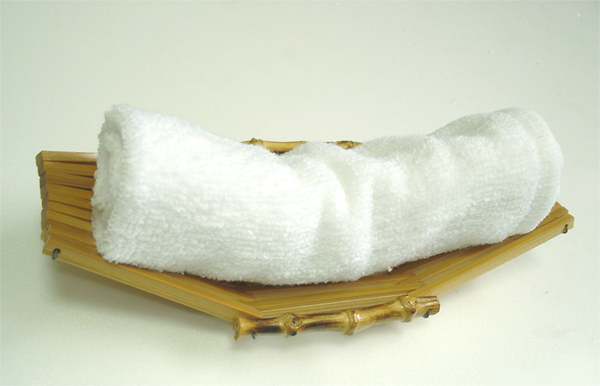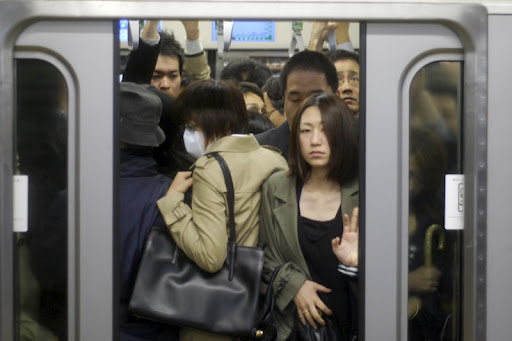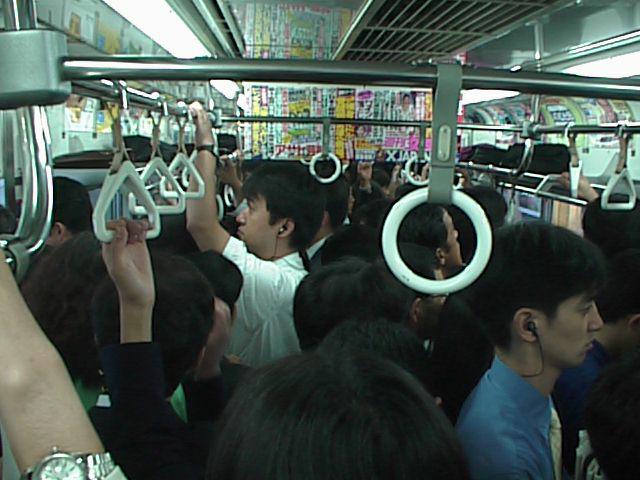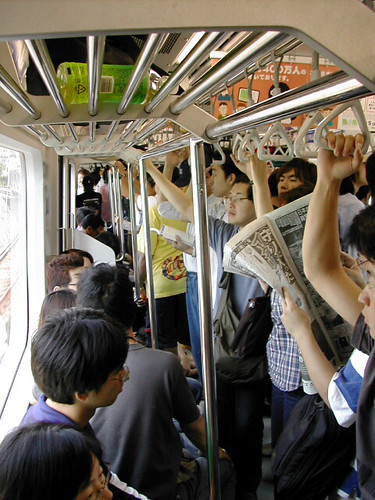How To's #20: Get a Prepaid Cellphone
Please visit my new site: www.TokyoSurvival.com
They finally have a relatively tourist and short stay friendly system for prepaid phones. It is darn reasonable too! Before getting a cell was a crazy ordeal; You had to sign a contract and pay crazy rates for only 30 minutes a month!
 Visiting friends for a short period of time is a pain without the coordination convenience of a phone. The only prepaid phones that were available were the ones for rent at the airport. THEY WERE AND STILL ARE TERRIBLE! The Rates are horrible and the phone is incredibly old. Worst is the LACK OF E-MAIL! If you have friends in Japan, this is a necessity.
Visiting friends for a short period of time is a pain without the coordination convenience of a phone. The only prepaid phones that were available were the ones for rent at the airport. THEY WERE AND STILL ARE TERRIBLE! The Rates are horrible and the phone is incredibly old. Worst is the LACK OF E-MAIL! If you have friends in Japan, this is a necessity.Introducing the new softbank prepaid phone. It's only 4000yen for the cellphone and prepaid phone cards. The rates are still pretty bad at 9 yen per 6 seconds. However, they don't over charge you for short conversations, which I greatly appreciate. These prepaid cards can be purchased at local convenient stores if you run out of minutes.
Now the best part:
Unlimited e-mails for 300yen a month! isn't that insane!?!
My old cellphone charged be 1000yen for every 10,000 e-mails... which seem like a lot... but you can blast thought it pretty quickly if you are using it like instant messaging.
Notes and the Catch:
- The phone only lasts for a year.
- You can only have e-mail only and emergency calls only up to 90 days. Otherwise you need to add more money to your prepaid minutes.
- Choosing you own e-mail is possible, but difficult to figure it out. I had to use a crazy looking one.
- You need to get a Japanese person to handle the contract for you or have an alien registration card (my friend was able to do it without it... but that is a pretty big inconsistency... so assume that you need a Japanese person).
- Go to Flagship Softbank Stores!!! The one in Shibuya is the one I went to. Locations that sell softbank phones like yodabashi and akiba do NOT have prepaid cells. The large one in Harajuku might have it, but I have not confirmed.
- PUSH PUSH PUSH! I hiked all over the city trying to get this damn phone. I called to make sure they had it, only for them to tell me that they didn't. When I insisted that someone confirmed that they did have it, than they were able to sell me the phone (not before disappearing for 15 minutes to check with their manager of course). It was frustrating needless to say.
Finding a Softbank Store:
- Maps of Flagship Stores!
- Harajuku: Shibuya:

- Shibuya:

So getting the phone was still a little painful and infuriating, but in the end I was infinitely satisfied with my phone. After everything, it cost me a little over 8000 yen to get me set up. Of course, I am not counting the cost of training around the damn city >_<! I got the 730SC - I was satisfied with the screen, functionality, and buttons (if they are to flat its hard to type). However, I never figured out how to get infrared to work.
If you are indeed staying a longer time in Japan: Please check out my older posts on my overview of cellphone carriers How To's#3: Getting a Cellphone(j-phone)













































